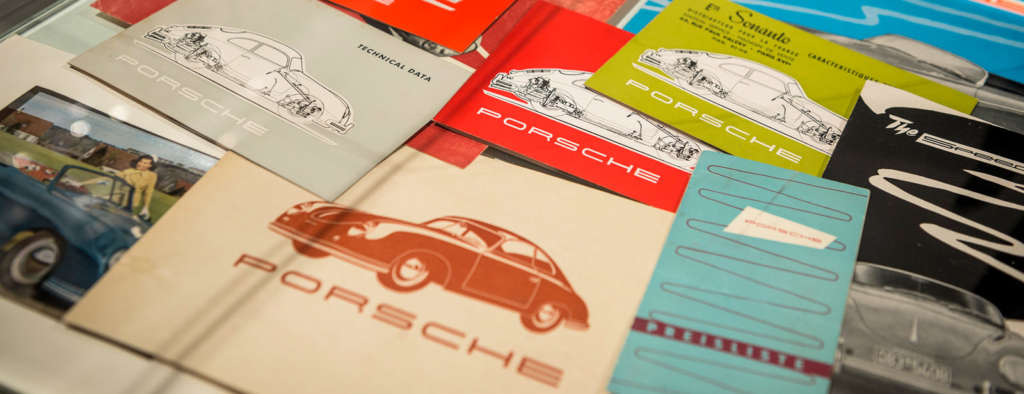As an international platform for Porsche enthusiasts, Elferspot offers the opportunity to check the global market for Porsche sports cars at a glance. In the meantime, we have already listed vehicles from over 15 countries worldwide. As a result, we often get asked by our users, how importing a car could be done. In the first part of our new series, we want to show you how it’s done, if you want to import your car to Germany. That applies to most other countries in the EU, except for the technical inspection and registration process. Moreover, we want to encourage you for searching your dream car abroad.
Inspecting a car in a foreign country
After finding an apparently good car, at first you need to organize an inspection. The most obvious option is checking the car by yourself. However, especially in the market for classic Porsches, consulting an independent expert is strongly recommended. If you can find one near the car in question, who could do a pre-purchase-inspection (PPI), it even may not be needed to see the car in person. A PPI with good pictures and a full report of the car’s condition is always money well spent. 250,- to 350,- Euros will be applied for an expert’s report, which lets you know exactly what to expect.

I’ve found my dream Porsche abroad – what’s next?
That depends on the country, where the perfect Porsche has been found. If the car has to be imported from overseas, you’ll need a transport company. The car has to get to the port of loading first and then needs to be shipped in a container. Our advise would be to commission only one company for everything, from collecting the car from the seller to freight, duties and transport insurance. If you encounter any problems or something goes wrong, then you’ll have only one contact for everything. Otherwise, for example in case of transport damage, a delayed release of your car or even a long-lasting lawsuit could arise.
What are the costs for importing the car?
When buying a car in your home country, you only have to pay for transport, registration and, if necessary, for a technical inspection. For import cars on the other hand, there’s a bit more to consider. At first, you need to pay for the trip to inspect the car. If your desired car is offered in the EU, most trips could be done with your own car and an overnight stay. When travelling with a flatbed or a trailer, you could load up the car and take it with you right after buying it. Even driving the purchased Porsche back home with a temporary registration is no problem either. Everything put into consideration, 1,000 Euros should easily be enough for that.
Naturally, inspecting a car overseas is more costly. Expenses for flight tickets, a hotel bedroom and a rental car easily add up to an amount between 1,000 and 2,000 Euros. Transporting the car to the port and freight will cost you roughly 1,500 Euros. Furthermore, a so called all-risk insurace is highly advisable. The costs for that depend on the car’s insurance value, which is the sum of the purchase price plus 10% and the freight cost itself. The insurance value, multiplied by 1-1.5% gives you the insurance costs.

For the handling at the destination harbour you’ll be charged another 350 Euros. According to the distance from the destination harbour to your home a transport fee will be applied, no matter if you collect your car on your own or if it will be delivered. Thats roughly 350 Euros as well. For a 50,000 Euro car, before paying tax and duty, you will be charged 4,000 Euros approximately.
For historic vehicles, the customs office can appoint a reduced tax rate
On top, you’ll have to pay for duty and tax. The duty will set you back 10% of the purchase price including freight and insurance costs. The tax will be calculated as follows: purchase price, freight, transport insurance, delivery fee, port handling and duty will be added up and give you the base value. That value will be multiplied by 19% and gives you the payable taxes.
Example: Import Porsche from the USA
For historic cars, which are more than 30 years old and collectible, the you can claim a reduced rate of 7% for tax and duty combined at the customs office. Hence, importing a classic car is worth to think about. Therefore, we’ve calculated the costs for importing this particular Porsche 911 Carrera 3.2 Targa from the USA as an example:
Exemplary calculation for importing a 911 Carrera 3.2 Targa
Import from overseas
| Purchase price | 37.150,00 € |
| Inspecting the car | 1.500,00 € |
| Pre-purchase-inspection | 350,00 € |
| Transport and freight | 1.500,00 € |
| Transport insurance | 635,48 € |
| Port handling | 350,00 € |
| Transport fee | 350,00 € |
| Duties/taxes | 2.798,98 € |
| Headlight conversion | 600,00 € |
| Technical inspection | 250,00 € |
| Total costs | 45.484,46 € |
When buying inside the EU, neither duty, nor tax will be applied
Due to that clause, buying a Porsche in another EU-country could be financially worthwile. Whereas you will be charged both when importing a car from outside the EU, you could save yourself some money with a purchase in the EU. There you only have to pay for the sales tax, which is usually included in the purchase price. Taking a closer look to the Porsche market in Austria, Italy, France or the Benelux-countries is therefore highly recommended. Elferspot-top-tip: Left hand drive cars in the UK could be a potential bargain, as long as the UK is still part of the EU.
But be aware of one exception from that rule: Buying a very young used vehicle. If the car’s mileage is below 3,724 (or 6,000 kilometres) and the car is less than six months old, you have to pay tax sales in Germany seperately. A declaration has to be sent to your local tax office.
What kind of paperwork do I need to register the car?
After the arrival of your Porsche at its destination, some technical requirements have to be fulfilled, before the car can be registered in Germany. At first, you either need a so called conformity-certificate of the EEC and a technical inspection, or an individual approval for your car, according § 21 of the German Regulations Authorising the Use of Vehicles for Road Traffic (StVZO). In both cases, your car needs lamps with a special test mark of conformity (e-number).

If in doubt, our advice would be to contact an expert from the TÜV or Dekra. They can tell you, which problems you might face in the technical inspection in order to register the car. The TÜV will help you finding a data sheet for your car as well. Within that data sheet, the emissions and the emission standard can be found, which makes a very expensive emission certificate obsolete. In case of importing an american car, the original US data sheet could come in handy as well.
After the Porsche has passed its technical inspection, the next task is the registration for road use. At the vehicle registration office you will get that, provided that you can show all the needed paperwork. That means the following documents: clearance certificate, certificate of title or manufacturer’s title of origin, old number plates, purchase agreement and invoice, report of the technical inspection, insurance number and your identity document.
Is it really worth it?
We can answer that question with a very clear “It depends”. Basically, no witchcraft is required to import a car. Who digs into the details will find out, that it indeed needs some personal initiative, but it could be a serious option. While imports from overseas seem to be interesting for older cars in particular, due to the additional purchase costs, costs for importing a “normal” car from another EU-country are much lower and therefore justify shopping for a Porsche in the international neighborhood.

And let’s be honest: No matter if your car lived its life in Germany, Japan or the US, every Porsche is a Zuffenhausen native.
Of course, you have to do your maths before importing a car. The additional purchase costs could add up to a significant amount of money, which could eat up the initial savings of a lower purchase price. That’s the only way to avoid nasty surprises when importing your very own Zuffenhausen sports car. A little bit of extra cash for potential repair bills should be taken for granted. As a result, importing could very well be a serious option, when you’re in the market for a Porsche. Especially rare cars with certain options could be found in a foreign country. If you ask us, you shouldn’t restrict your hunt for a Porsche to your home country. Even if you wouldn’t save a lot of money, you could tell a nice little story of importing your car. And let’s be honest: No matter if your car lived its life in Germany, Japan or the US, every Porsche is a Zuffenhausen native.
Images: © Porsche AG & © Julius Silver, Paul Zimmerman
Elferspot magazine
You have reached your article limit for this month.
Become an Elferspot Member now and get unlimited access to our Elferspot Magazine and other features!
- No obligations or charges.
- We help you find your dream car: get newly added cars straight into your mailbox.
- Your own watch list for your favorite cars.
- Unlimited access to Elferspot Magazin.
- -10% welcome discount for Elferspot textile products
- Successfully sell your Porsche via Elferspot.



